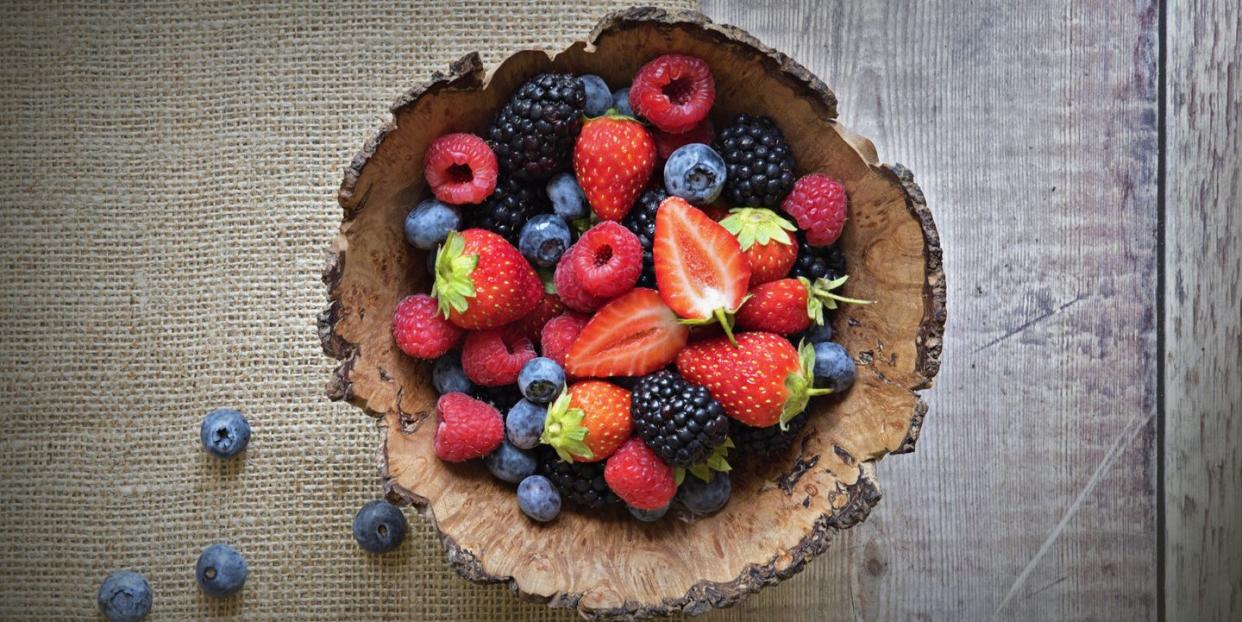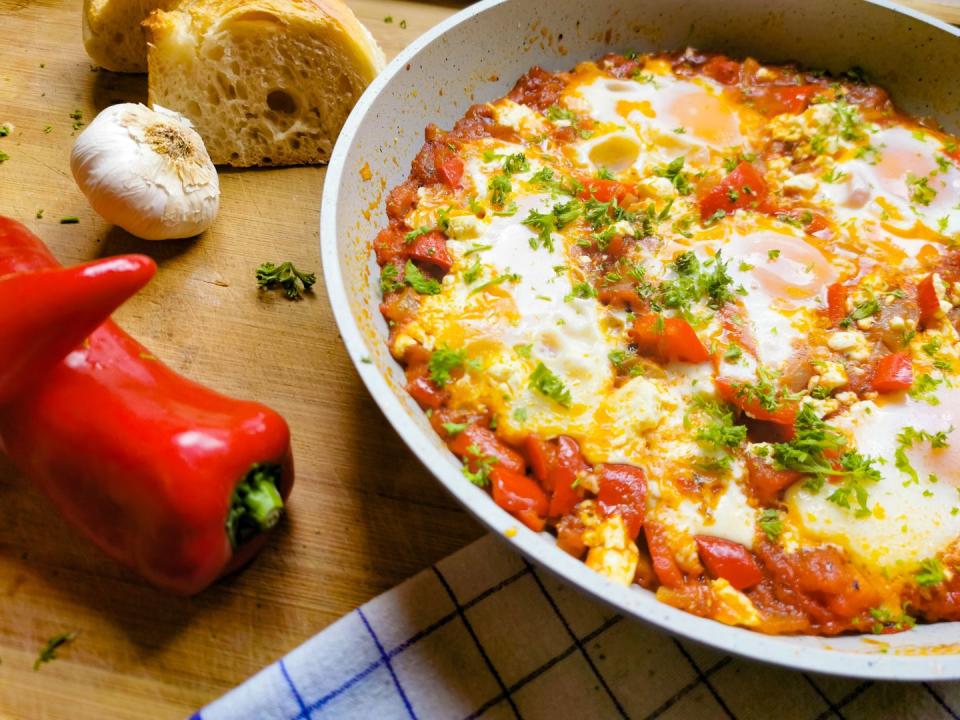9 immune-boosting foods to add to your diet

Running brings enormous health benefits and - like all moderate aerobic exercise - can provide a big boost to your immune system. However, hard sessions, races or overtraining can leave many runners more vulnerable to colds and other viruses.
If you feel that description might apply to you, then don't worry - there are things you can do. Even just making sure your nutrition is on point can really help fight off the winter bugs and keep you healthy and running all year round. Here are nine ways to really bring the biggest boost.
1. Load up on nutrient-dense meals
The good news is, you don't need to spent hours sweating over a hot stove to get the best out of your meals. In just 10 minutes or so. you can prep your ingredients and throw them into a slow cooker or a roasting tin. Use a variety of seasonal vegetables to make soups, casseroles and even curries. Plus, if you know that the slow cooker has a delicious meal just waiting for you when you get back, it might just free up the time and energy you need to get that session in after work before you enjoy it.
Eat it: Use seasonal vegetables, add complex carbohydrates, leafy greens and high-quality meat or dairy produce.

2. Vitamin C
Vitamin C is also a powerful antioxidant, understood to protect the immune system against oxidative stress generated during infections. It will also help combat running-induced free-radical damage. High levels of vitamin C have been associated with enhanced antibody response and neutrophil (a type of white blood cell) function. It has even been used in some intensive care units to help treat Covid-19.
Eat it: Oranges, peppers, leafy greens, broccoli, berries and tomatoes are all good sources of vitamin C.
Supplement it:
3. Supplement with Vitamin D
With the UK's less than reliable levels of sunlight, absorbing the Vitamin D that your body needs in summer can be hard enough and in winter - forget it. Yet Vitamin D is absolutely vital for your immune function - amongst many other roles it plays in our health. So many people don't even realise that the NHS recommends we take a supplement every day in winter.
This is partly because there are very few foods that provide you with enough. So if you only take one supplement then make this the one. The general maintenance dose for runners is 2000iu a day but this may need to be higher or lower depending on your blood levels.
Eat it: Vitamin D can also be found in eggs and salmon, as well as mushrooms grown in sunlight.
Supplement it:
4. Zinc
This essential mineral supports innate and adaptive immune system functions. Those who are zinc deficient have an increased risk of a variety of infections; supplementation has been shown to reduce the severity and duration of illness, to help heal wounds and to fight infection.
Eat it: Increase your intake with zinc-rich foods, including seafood (especially oysters), organic red meat, beans and nuts.
Supplement it:
5. Think gut health
There are numerous studies that demonstrate the link between having a healthy gut biome and immune health. In general, the more diverse your gut biome, the healthier we are. Wholegrains, fruits, vegetables and fermented foods are all important to include to encourage a healthy gut biome. In addition, research has also shown that including a 12-week course in probiotics, ideally, those that are water-based can prevent the incidence of upper respiratory tract infections in highly active individuals.
Eat it: Probiotics occur naturally in fermented soya products such as miso and tempeh. Try adding Clearsprings Brown Rice Miso Paste (£4.79 for 300g, clearspring.co.uk) to soups, stews, bean dishes and sauces to boost flavour and give your gut a bacteria boost.
Supplement it:
6. Comfort carbohydrates
We all know that feeling, the temperature plummets, and all we want to do is eat stodge. Wholegrain, complex carbohydrates are important to include in your diet as they help your muscles work efficiently, and support recovery, gut, bone and hormonal health.
Eat it: Aim for one-third of a plate of wholegrain nutrient-dense carbs at every meal – such as sweet potato, pasta, rice, oats and bread.

7. Stay hydrated
While over the summer months it can be easy to keep on top of your hydration, in winter reaching for a cold drink can be the last thing on your mind. However, being hydrated encourages saliva production and saliva is your first line of defence, so it's important to keep on top of this. One tip is to flavour your fluid – use no added sugar squashes or fruit/herbal teas, as these can encourage you to drink.
Eat it: Yes, you can stay hydrated partly through what you eat – think plenty of fruit and veg, as well as yoghurt.
8. Get enough ZZZs
Sleep is definitely not overrated. It has been demonstrated in several studies that aiming to get a minimum of seven hours of sleep but an optimal of eight hours a night is necessary to help repair the body both physically and psychologically. Few people know that growth hormone, responsible for the physical repair, is at its highest around 12-2 am. Aiming to get to bed early enough will ensure that you make the most of this, especially as levels start to decline the older we get. Try and get into good sleep hygiene practises, including avoiding looking at your phone or laptop at least 30 minutes before you go to bed; try reading or even some gentle yoga. You will definitely reap the rewards of more energy through the winter months.

9. Elderberry
Elderberry extract has been used as a natural anti-viral for centuries. Studies have found that supplementation works to increase inflammatory cytokine production, a healthy response from our immune systems when viruses are present. Their dark-purple colour is the result of beneficial compounds known as anthocyanins, powerful plant chemicals with antioxidant effects.
Eat it: Elderberries can be found in abundance in hedgerows, between July and October, depending on where you are in the UK.
Supplement it:
Kim Pearson is a nutritionist with over 10 years of experience. kim-pearson.com
Like this article? Sign up to our newsletter to get more articles like this delivered straight to your inbox.
While you're at it, subscribe to the magazine here and get it through your letterbox each month
You Might Also Like


